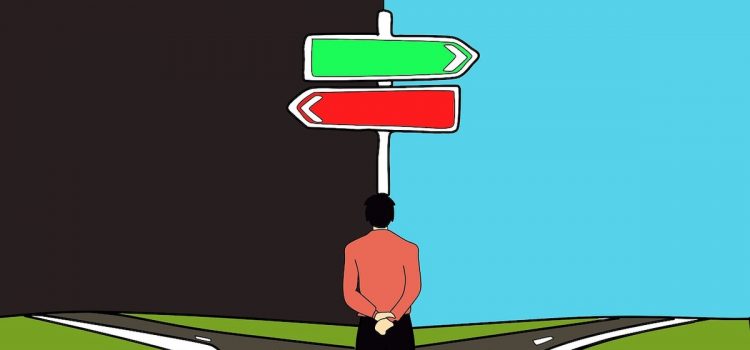

This article is an excerpt from the Shortform book guide to "Free Will" by Sam Harris. Shortform has the world's best summaries and analyses of books you should be reading.
Like this article? Sign up for a free trial here.
What is libertarian free will? What part of the view does Sam Harris disagree with?
Libertarian free will describes a philosophy that contends that external factors affect but don’t determine our actions. In his book Free Will, Sam Harris explains the concept and discusses how he thinks the theory is right in one respect and wrong in another.
Keep reading to learn about libertarian free will.
Libertarian Free Will
What is libertarian free will? Libertarians—referring to the philosophical view, not the political philosophy of the same name—believe that events are not predetermined and that we do have free will. Harris explains that libertarians reject the idea of determinism: They don’t believe that all of the events in the universe, including our choices and actions, are caused by past events. Libertarians also don’t believe that our thoughts and decisions are fully explainable in physical terms: by the systematic ways our brains respond to past events and to influences outside of our consciousness and control. Instead, libertarians contend that while these influences affect our thoughts and behavior, we’re ultimately free to make our own decisions.
(Shortform note: Harris presents a succinct overview of the libertarian idea of free will, but some experts view this theory in ways that differ substantially from Harris’s interpretation. Philosopher John Lemos argues that Harris’s critique oversimplifies libertarian arguments. He says that instances in which we deliberate between two conflicting options, like stepping in to prevent a mugging or continuing on to work, are examples of cases in which we have free will and can therefore be held morally accountable for our actions. Lemos adds that Harris seems to be implying that all scientific evidence currently points toward determinism when that’s actually not the case: In fact, he says, some scientific studies throw these conclusions into doubt and show that the brain doesn’t necessarily work according to linear cause and effect.)
As a determinist, Harris agrees with libertarians on incompatibilism: the idea that free will and determinism are inherently contradictory. But, he disagrees with them on indeterminism: the idea that not everything is predetermined. Harris also rejects the libertarian idea that human behavior isn’t fully explained by the physical cause and effect that occurs when our brains respond to influences outside of our consciousness or to stimuli outside our bodies. He also objects to the way that some libertarians account for this complexity by arguing that we aren’t just physical entities and may even have something like a mind or a soul in addition to our physical matter. Harris rejects this possibility.
(Shortform note: Some experts have spotted ambiguities in Harris’s response to libertarianism. When Harris rejects the idea of a mind or a soul, he ostensibly dismisses the idea, called “mind-body dualism,” that we have a material body and an immaterial mind. Harris states that our thoughts, decisions, and consciousness are simply a result of physical processes in the brain. But psychologist Michael Clayton contends that Harris nonetheless thinks like a dualist by implying throughout the book that we have a brain that makes decisions and a mind that observes them. Philosopher Daniel Dennett argues that this idea is implicitly dualist and doesn’t satisfactorily explain consciousness, which many scholars understand as a function of the brain.)

———End of Preview———
Like what you just read? Read the rest of the world's best book summary and analysis of Sam Harris's "Free Will" at Shortform.
Here's what you'll find in our full Free Will summary:
- That free will is an illusion that you should abandon altogether
- How our thoughts, feelings, and desires are caused by outside influences
- Why putting effort into decisions matters, even if they're predetermined






